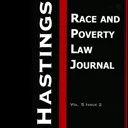- | Journal Articles Journal Articles
- |
The Legal Empowerment of the Poor: Titling and Poverty Alleviation in Post-Apartheid South Africa
Titling programs transfer property titles from the public sector to private individuals and in the process allow them to convert property into capital. This process is a key step on the road towards

In this law review, Enterprise Africa! lead researcher Karol Boudreaux focuses on the role secure property rights play in economic development. In particular, attention is paid to a policy initiative that many developing countries have pursued: titling real property. Titling programs transfer property titles from the public sector to private individuals and in the process allow them to convert property into capital. This process is a key step on the road towards the legal empowerment of the poor.
However, legal empowerment of the poor is about even more than converting property into capital. Legal empowerment is about creating an institutional framework that enables the poor to flourish in an environment with viable rule of law that provides employment, health, and educational opportunity and choice.
Boudreaux concludes that while titling helps to put some life into what might be called dead capital, by itself titling policies go only so far towards the legal empowerment of the poor. While titles help shift incentives in positive directions, further institutional reform is needed to reduce transaction costs, to encourage home owners to transfer property formally, and to encourage business owners to grow and expand their businesses.
Citation (Chicago-Style)
Boudreaux, Karol. "The Legal Empowerment of the Poor: Titling and Poverty Alleviation in Post-Apartheid South Africa." Hastings Race and Poverty Law Journal, 5 (2), 2008.

